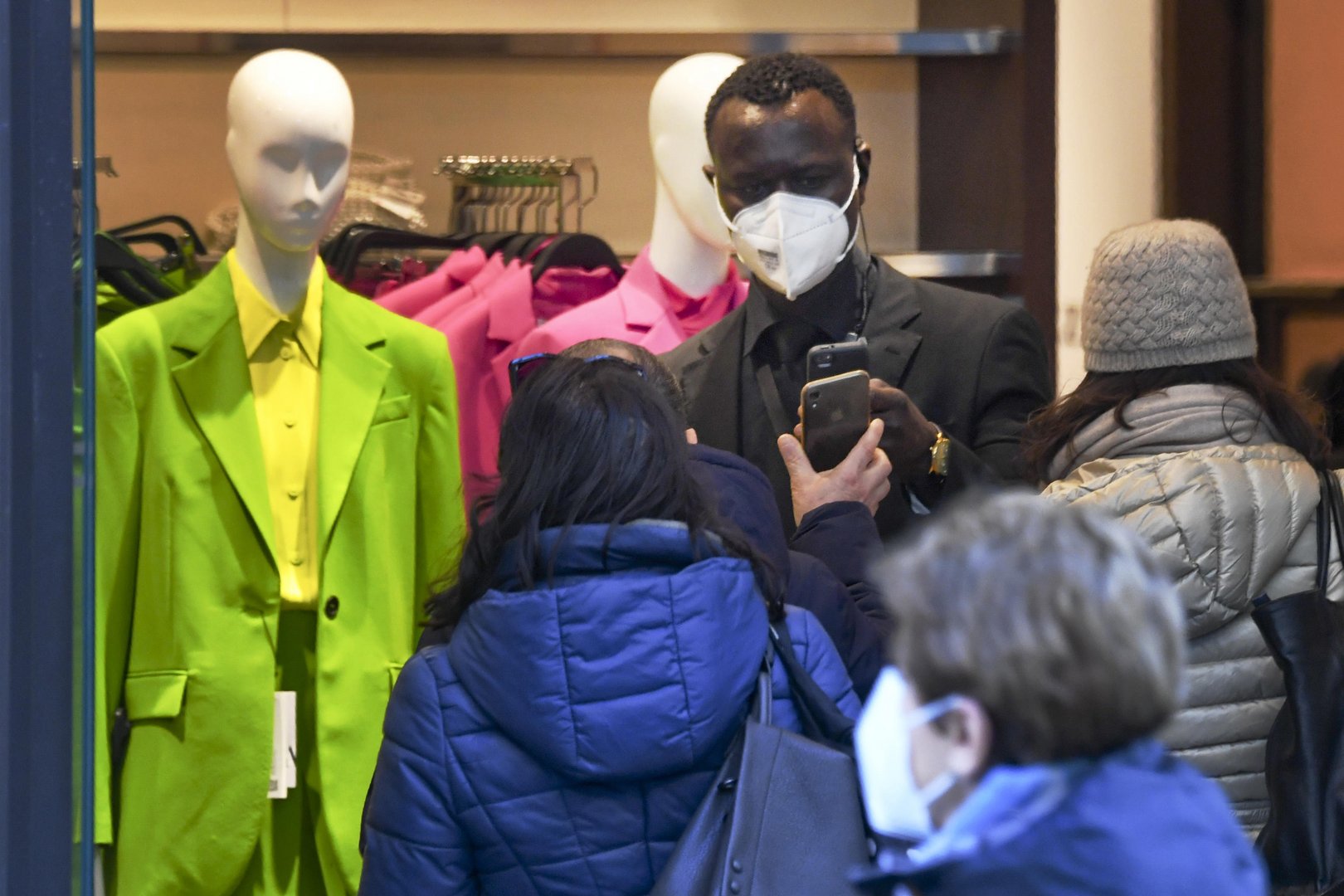The health ministry’s new Covid-19 rules, which will see changes to SafePass and self-isolation rules, will go into effect on Tuesday following a cabinet decision last week.
Speaking after the meeting, Health Minister Michalis Hadjipantelas announced that a new plan adjusting the SafePass requirements, introduced July last year, will be in force.
As of Tuesday, those testing positive for coronavirus and their close contacts will be able to exit self-isolation on the seventh day provided they test negative in a PCR or rapid test. (More details here)
At the same time, the maximum number of people allowed in retail businesses, casinos and gyms will also be increased, while the maximum number of persons at events including weddings and christenings will be set at 500 persons as of March 8, provided the area of the venue allows for a ratio of 1.5 m2 per person.
The ban on school parades was also lifted with a special protocol with guidelines expected to be issued.
In addition, premises and activities will be classified according to risk, which will correlate with the size of the premises and will fall under four categories: high risk, medium risk, low risk and ‘short-stay’ areas.
Supermarkets, bakeries, kiosks, pharmacies, takeaways and retail shops of less than 100 square metres are examples of ‘short-stay’ areas, where displaying a SafePass will not be required.
Other facilities, despite being listed as low-risk, such as banks, will still need a SafePass either with a 72-hour rapid test or a 72-hour PCR for everyone other than people who have had three jabs.
Restaurants, bars and conference halls that can host 150 people and above are classed high risk, while the same types of premises with a capacity of 150 people and under carry the medium-risk designation.
At the same time, venues like restaurants, bars and wedding venues with a capacity of under 150 people are classed as medium risk. This category also includes hotels, tourist accommodation, sports grounds, places of worship, gyms, and casinos.
For both high and medium-risk categories, the density designation is one person per 1.5 square metres.
Low-risk premises include theatres, amphitheatres, cinemas, schools, malls, retail establishments, banks, and organisations that serve the public. Here, the density designation is one person per 4 square metres.
The new measures continue to provide for different requirements for people depending on whether they have been vaccinated against the virus or not.
Individuals without any coronavirus vaccination record, or who completed their vaccination regimen and the seven-month period has elapsed, or who have a certificate of having contracted the disease and the period of 90 days has elapsed, must display a SafePass (24 hours if rapid test, 48 hours if PCR) for high-risk areas.
For the same category of people, the SafePass requirements are a 48-hour rapid test or 72-hour PCR for medium-risk premises. And for low-risk areas, a SafePass valid for 72 hours, whether rapid test or PCR.
For persons having received a third/booster shot, or received two doses for two-dose vaccines, or one dose for J&J, and the seven-month period has not elapsed, or who possess a certificate of having contracted the disease and the 90-day period has not elapsed, they must have a 48-hour rapid test or 72-hour PCR in high-risk areas. In medium-risk areas, they must display a valid certificate of vaccination or of having contracted the disease; the same goes for low-risk premises.
The government clarified that for people who for medical reasons cannot be vaccinated and who possess the relevant medical certificate issued by the health ministry, they must have a 72-hour rapid test or PCR.
A SafePass is required in premises where more than 25 persons congregate, that is, premises of more than 100 square metres.
In areas designated as high-risk, checking people with a valid vaccination certification or a certificate of having contracted the disease will be done as follows: the certificate will be verified with the CovScan Cyprus app, and next the negative coronavirus test (rapid or PCR) will be produced in print format or message format.
For workplaces a 48-hour pass will still be required for those who opted not to be jabbed while those with three jabs will not need to test for work.
Cabinet also decided to reduce the self-isolation period of people testing positive to the virus from ten to seven days provided they test negative in a rapid or PCR test as of March 8.
The self-isolation period of people who are close contacts with a confirmed case and are unable to isolate from the infected person, such as parents of a Covid infected child, will also be reduced to seven days given they test negative to the virus, the minister said.
The health minister announced several relaxations of the coronavirus measures last month, which was said to be the beginning of the gradual lifting of most restrictions in the coming weeks.







Click here to change your cookie preferences